As soon as winter ends, many people instantly become hungry for the kinds of parties, picnics, BBQs, and other gatherings that are often a hallmark of summer. And with them often comes a host of fatty, salty, and sugary foods typically associated with summertime: burgers and dogs on the grill, potato chips, soda, cocktails and beer, and, of course, ice cream. Although these summer foods often come with a sense of nostalgia and comfort, consuming them isn’t necessarily in your health’s best interest.
These days, more than ever, it’s important to pay attention to what you’re putting into your body — and how it affects your health.
So can you enjoy summertime, summer picnics, and summer foods while showing love to your body as well as your taste buds?
Yes. But not if you stick with the status quo.
Unhealthy Summer Foods to Avoid
Let’s start with the bad and the ugly: America’s favorite summer foods that compromise health (and, incidentally, are hard on the environment, too).
The (Hot) Dog Days are Over
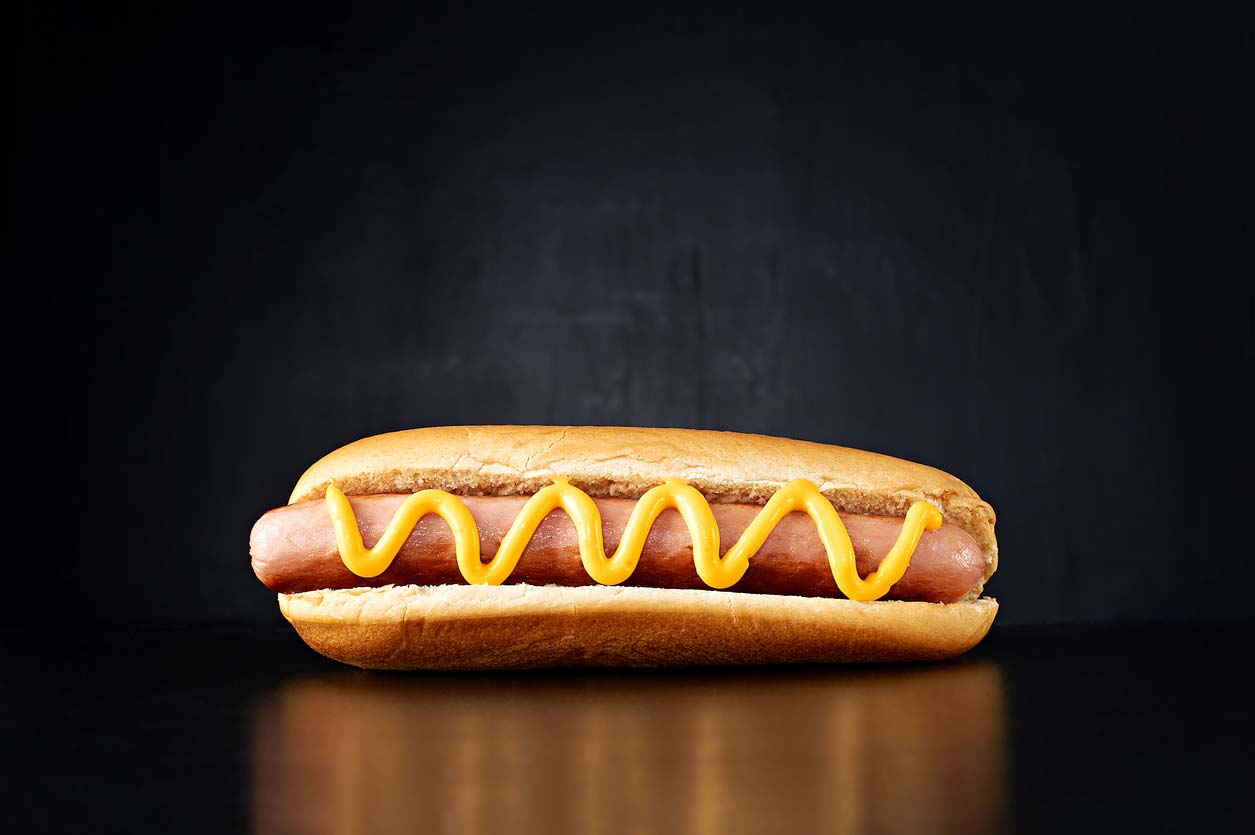
Perhaps the most famous form of summer fare in the United States is the hot dog. Americans consume roughly seven billion hot dogs each summer between Memorial Day and Labor Day.
But there are some very good reasons why you and your guests might want to leave the hot dogs out of your summer celebrations.
Impacts on Your Health
For starters, hot dogs, like all processed meats, are categorized as Group 1 carcinogens by the World Health Organization (WHO). This puts hot dogs in the same class as tobacco and asbestos. Just a single hot dog per day was found to increase the risk of colorectal cancer by 18%. And if you worry about the effects of cell phone usage on your children’s brains, you might be shocked to learn that eating a single hot dog per week can raise a child’s risk of a brain tumor seven times more than regular cell phone use.
Hot dogs also contribute to heart disease. They contain loads of sodium and saturated fat. And the more processed meats (like hot dogs) people eat, the higher their risk of heart disease. Hot dogs also increase the risk for type 2 diabetes, partly because of their saturated fat content, and also because of the nitrates and nitrates that can damage the pancreatic cells that make insulin.
Environmental Impacts
And then there’s the environmental impact of animal products like hot dogs. A 2014 French study on sustainable diets found that diets containing animal products contributed the most to greenhouse gas emissions. In fact, livestock CO2 emissions represent 14.5% of all human-related emissions. And factory farms produce large amounts of animal waste, which causes water and air pollution.
Unsettling Ingredients
Then, there’s the gross factor: hot dogs are frequently recalled due to contamination. While bacterial contamination is bad enough (listeria is no friend to your digestive system and can be fatal in newborns, unborn babies, and people with compromised immune systems), other reasons for hot dog recalls have included metal shards and bone fragments. And a hard-hitting Time magazine article from 2015 also listed 38 other things Americans say they’ve found in a hot dog. The list included a dime, a white hex nut, a pill, metal shavings, a large ant, a clump of hair that might have been eyelashes, and the tip of a razor blade. And don’t get me started on the legal ingredients that find their way into the hot dog supply, like “head meat” and “animal feet.” I think it’s fair to say that hot dogs won’t win any health food awards this summer (or ever!).
Hamburger is No Helper
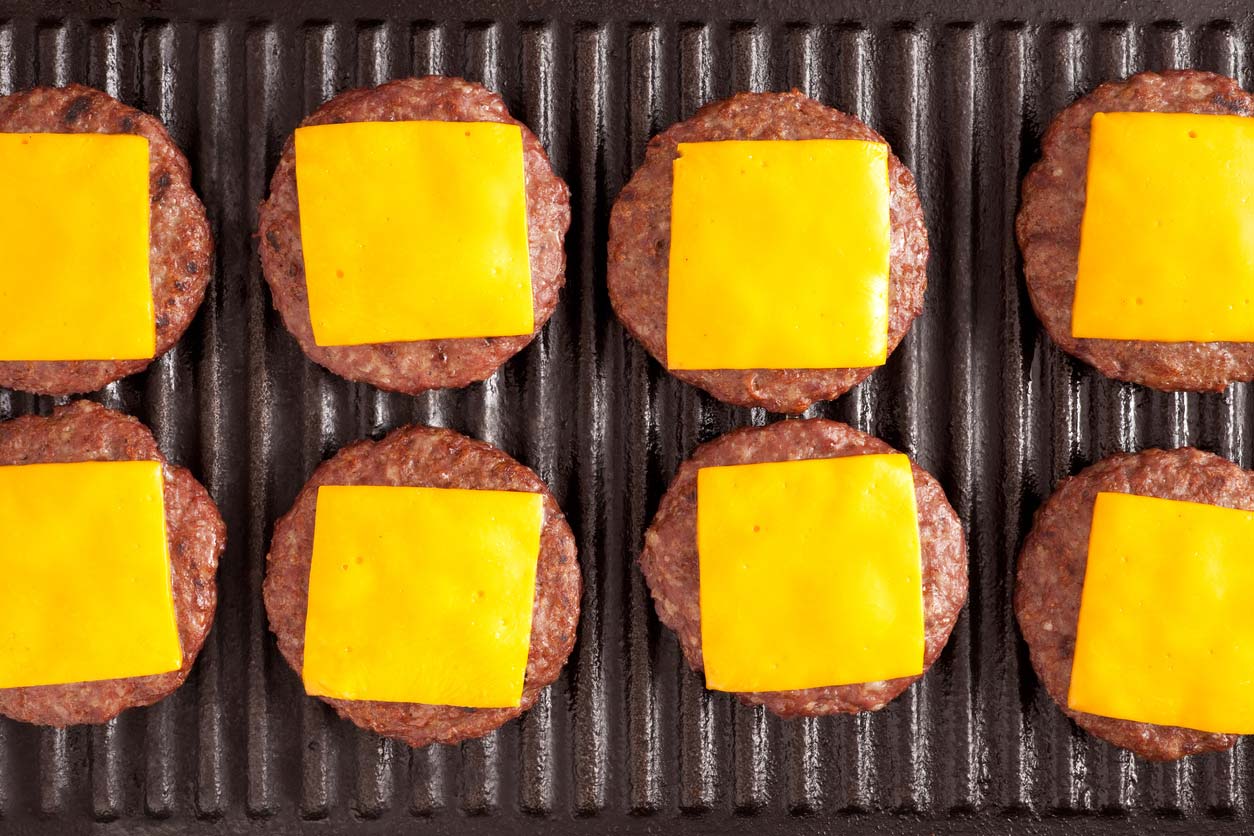
Hamburgers, the other quintessentially American grilled meat, have their own equally troubling set of problems. The estimated 375 million burgers consumed just on a typical July 4th in the US not only increase the risk of heart disease and diabetes, but also pack an extra cancer punch due to the formation of heterocyclic amines (HCAs) and polycyclic aromatic hydrocarbons (PAHs) in the grilling process. And you don’t even have to eat the burger to suffer the consequences, as these compounds become airborne in addition to clinging to the meat.
And if a committee convened to brainstorm ways to make hamburgers even worse for your health, they’d be hard-pressed to outdo the cheeseburger. Adding in dairy-based cheese loads up even more saturated fat and sodium. A typical BBQ-made cheeseburger can contain half of your RDI of saturated fat. And a burger with all the fixings, including cheese, might have up to 1,000 mg of sodium or more, which is also almost half your daily limit.
Let the Chips Fall — Away from You
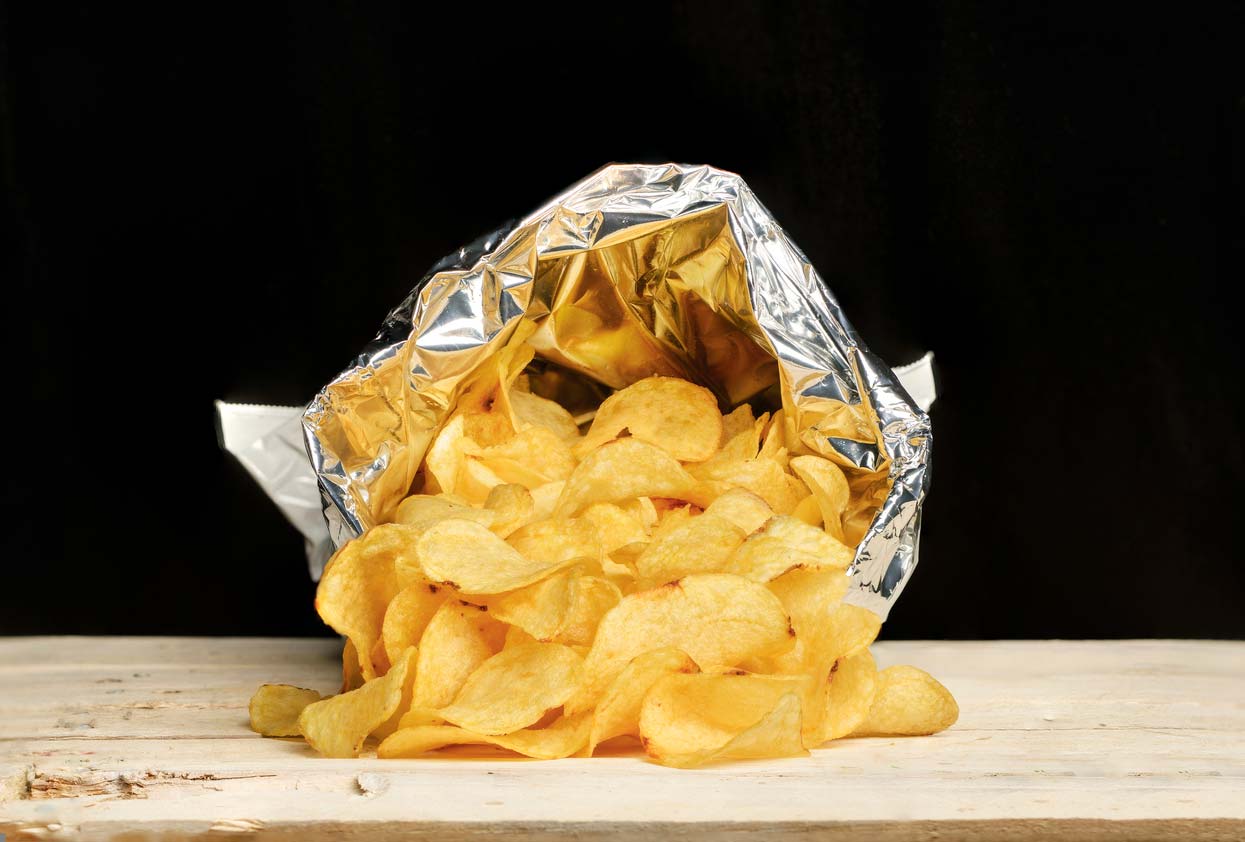
Potato chips and other fried foods aren’t about to earn a place in any healthy eating guidebooks, either. To add insult to their high fat and sodium content, many chip companies use unhealthy and genetically modified oils, or even trans fats to produce their products. And the high-temperature cooking process combined with the high starch content of the chips leads to the creation of a toxic chemical called acrylamide, which studies show can cause cancer in laboratory animals.
Soda Problems
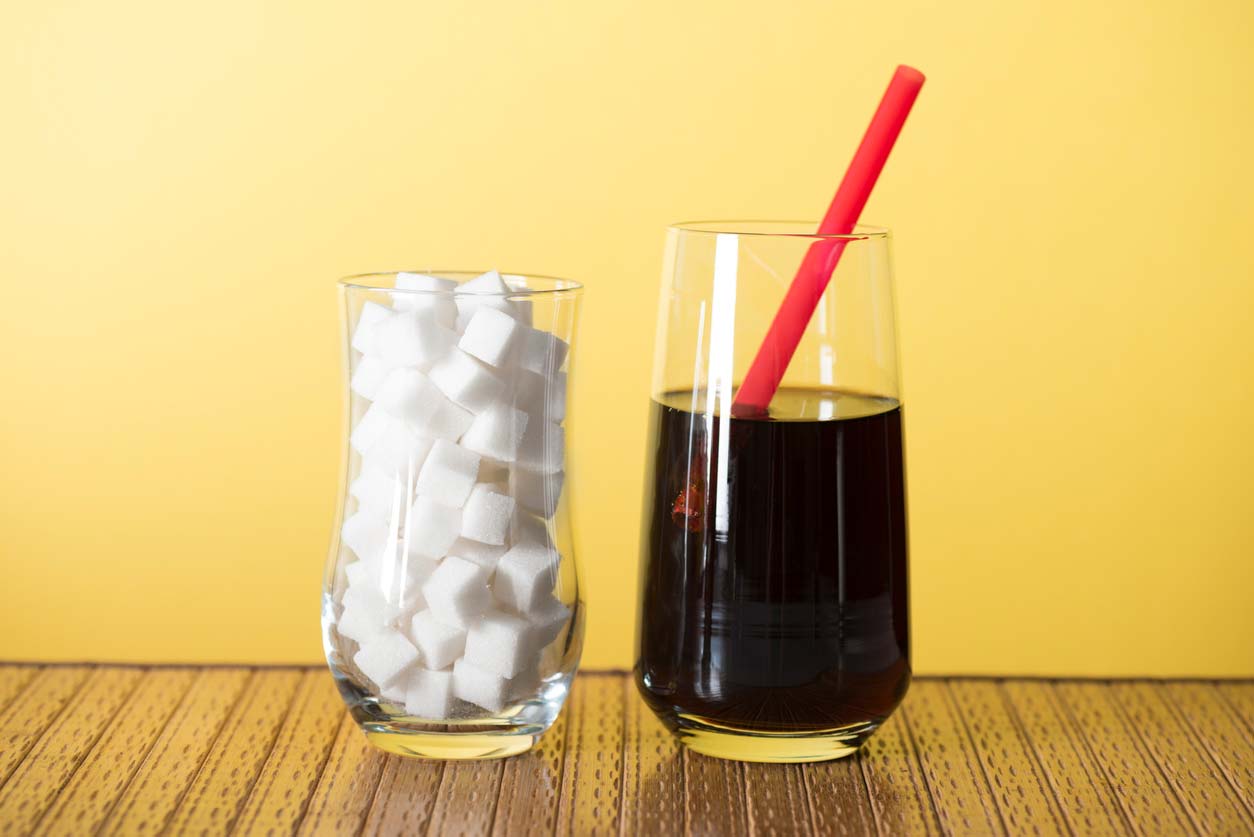
After eating high sodium-containing hot dogs, hamburgers, and chips, most people will get mighty thirsty. Unfortunately, one of the most common summer beverages of choice is soda, which is bad for you in so many ways, from rotting teeth to increasing the risk of heart disease, to damaging metabolism in ways that hamper fat burning and prevent weight loss, to increasing the risk of cancer and asthma. And please don’t think that diet sodas are the answer either. Their artificial sweeteners can wreak havoc on your beneficial gut bacteria and may be even worse for you than regular soda.
Ice Cream is No Treat

Here’s a problematic summer food that hits home for me: ice cream. As you may know, my dad, John Robbins (co-founder of Food Revolution Network), walked away from his place as heir to the Baskin-Robbins ice cream empire in his early 20s once he began to see the connections between the dairy industry and human health, animal welfare, and environmental quality. (That’s the reason he grew up with an ice-cream-cone-shaped pool in his backyard. And I grew up in a one-room cabin on an island off the western coast of Canada!)
Seriously, though, I’m glad my dad had the courage to walk away. Leaving aside the environmental and ethical concerns associated with dairy, and, therefore, ice cream, the stuff really isn’t good for you. Ice cream has plenty of ingredients that are concerning to all types of diets, plant-based eaters and keto adherents alike. Aside from the large amounts of saturated dairy fat and sugar, many ice cream brands use artificial colorings (linked to hyperactivity and possibly ADD/ADHD) and “natural” flavors that are often anything but. Plus, when you consider that the average American consumes 23 pounds of ice cream each year, it’s definitely not helping our collective health (or weight!).
Booze Blues

Finally, we can’t talk about problematic summer foods and beverages without mentioning alcohol. From coolers of beer to fancy drinks with umbrellas and cute names, Americans love to beat the heat and take the edge off with alcoholic beverages. You can read all about the dangers of even moderate alcohol consumption here. But I’ll just list a few of the conditions caused, correlated, or worsened by excessive drinking: Alzheimer’s and other dementias; depression and anxiety; cancers of the liver, breast, mouth, throat, esophagus, colon, and rectum; organ failure; obesity; heart disease; type 2 diabetes; and overall risk of death, including risk for alcohol-related accidents, and the list goes on.
Well, that was a depressing survey of some of the most popular summer foods on the standard American diet! Maybe we should just cancel all the picnics and stay inside and watch Netflix by ourselves instead. But not so fast! The good news is, there are plenty of delicious summer foods you can love that will also love you back.
Healthy Summer Foods to Enjoy
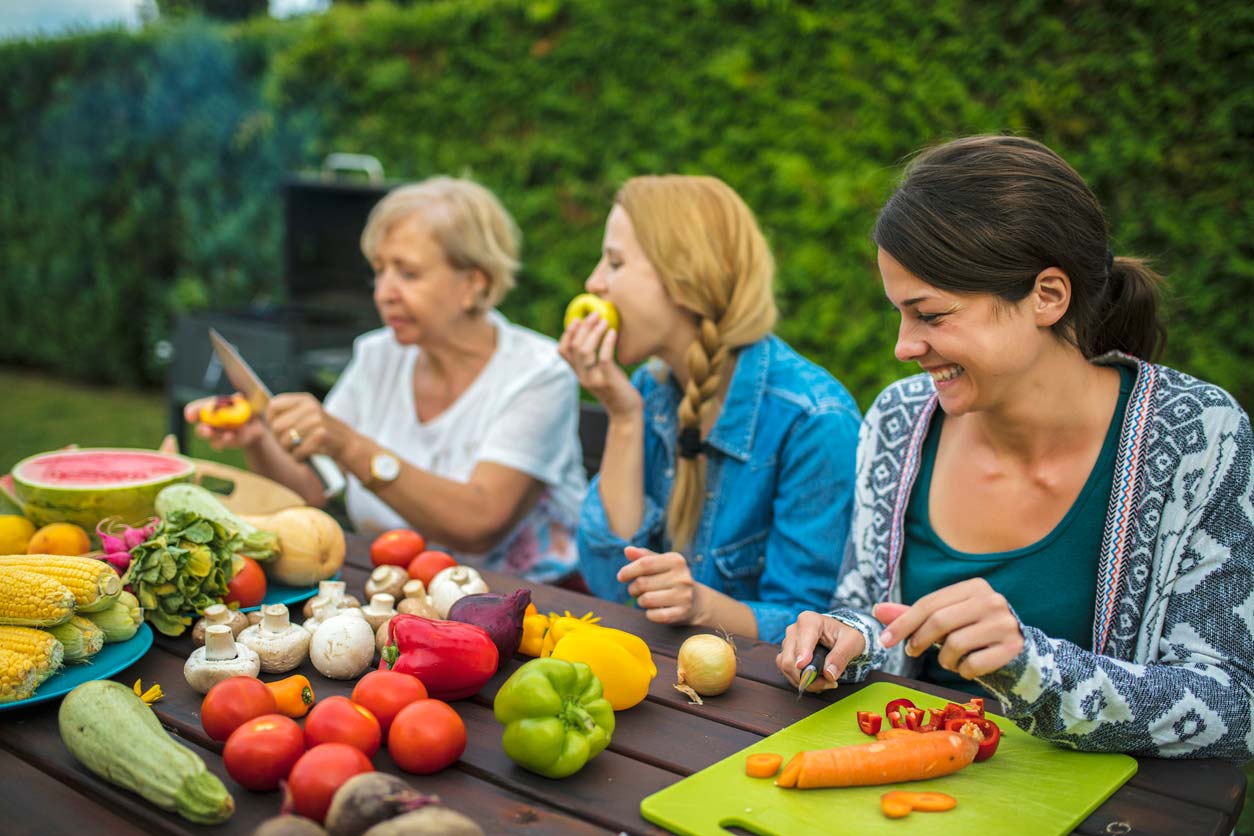
The key to choosing healthy summer foods can be summed up in a single word: hydration. The healthiest, most refreshing summer foods contain lots of water, which is convenient since hot summer temperatures will cause you to sweat more — making hydration all the more important.
Foods with High Water Content
The best way to hydrate is by drinking lots of water. But you can also stay hydrated with other beverages and with foods. Which foods? Let’s start with fruits and vegetables, which are so high in water that they’re, by definition, low in calories. And, of course, they’re chock full of vitamins, minerals, antioxidants, and other health-promoting phytochemicals, too.
When possible, choose fruits and vegetables that are also grown near you. Local food is fresher and more delicious, as well as having the lowest carbon footprint. You may be able to shop at farmers markets, or check this guide to see what’s in season near you.
If you can, go organic too, as organically grown produce has been shown to be healthier for you, and much better for farmworkers and the environment.
If you’re looking for hydration superstars, here’s a list of summer foods with exceptionally high water content:
- Watermelon
- Cucumber
- Celery
- Berries
- Cantaloupe
- Tomatoes
- Peaches
- Oranges
- Lettuce
- Bell Peppers
- Cauliflower
- Cabbage
- Grapefruit
- Pineapple
Foods with Electrolytes
When it’s hot outside and you’re sweating, you don’t just need water, but also the electrolytes that you lose through perspiration. Some foods that are high in electrolytes (especially, but not exclusively, sodium and potassium) include:
- Leafy greens
- Avocados
- Potatoes
- Beans and other legumes
- Seeds (pumpkin seeds, flaxseeds, etc.)
- Bananas
- Olives
Creative Ways to Eat Those Good-for-You Summer Foods

Don’t worry. I’m not saying you have to replace hot dogs, hamburgers, and potato chips with just plain, raw fruits and vegetables. You can still make delicious, fun, and filling dishes that scream “summer festivities” with no sense of deprivation or compromise.
Sides and appetizers can include fruit salads, bean dips with cut-up veggies, and steaming hot corn on the cob.
Main dishes can even mimic the old favorites, including carrot dogs and veggie burgers. Kebabs with seitan or organic tofu instead of meat are also vehicles for grilling veggie and fruit chunks. One of my favorite combos includes marinated mushrooms, cherry tomatoes, pineapple, red onion, and marinated extra-firm tofu on a skewer. Salads can also serve as main dishes, especially when you add hearty ingredients like beans, quinoa, and roasted veggies. You can grill tofu, tempeh, and seitan “steaks,” and even make steaks out of large, sliced cauliflower heads or seasoned jackfruit.
Dessert is only limited by your imagination. You can create elegant fruit kebabs with berries, grapes, apple and grapefruit chunks, or whatever else is in season. A blender and a freezer can collaborate to make you fresh fruit popsicles. And there’s always N’ice cream: homemade non-dairy ice cream (free from all those unhealthy additives).
And if you want some beverage variety, in addition to good old H2O, you can go with unsweetened or stevia-sweetened iced teas and coffees, fresh-squeezed juices, smoothies, and even mocktails.
For more ideas and lots of recipes, check out our “Ultimate Guide to Hosting or Attending a Healthy, Plant-Powered 4th of July Celebration (Or Other Summer Party).”
So there you have it. There are healthy and delicious summer foods out there that you can enjoy without compromising your health. Now, want some recipes?
5 Hydrating and Nutritious Summer Food Recipes
Whether your picnic plans involve spreading a blanket on the grass or in your living room, these light and easy recipes will help you stay hydrated, nourished, and energized. They’re a healthy summer in your bowl, on your plate, and in your glass!
1. Chilled Cucumber Avocado Soup
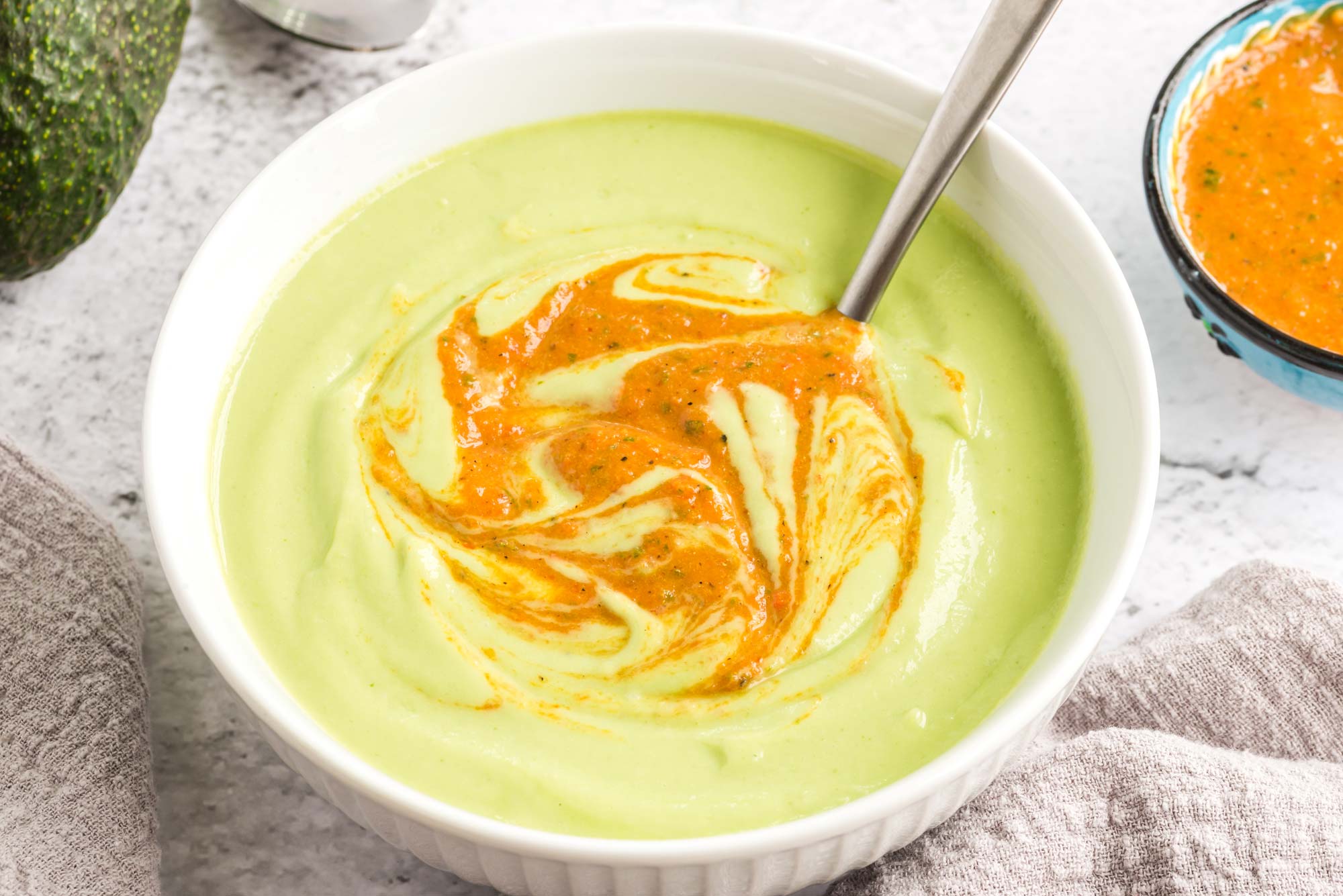
Refreshing, nourishing, and perfect for warm summer evenings, this creamy, cooling soup is sure to satisfy. If your cucumbers are unwaxed, keep the skin on to maximize nutrition. Otherwise, go ahead and peel them; either option is good for you!
2. Sweet and Smoky Tofu, Vegetable, and Pineapple Skewers
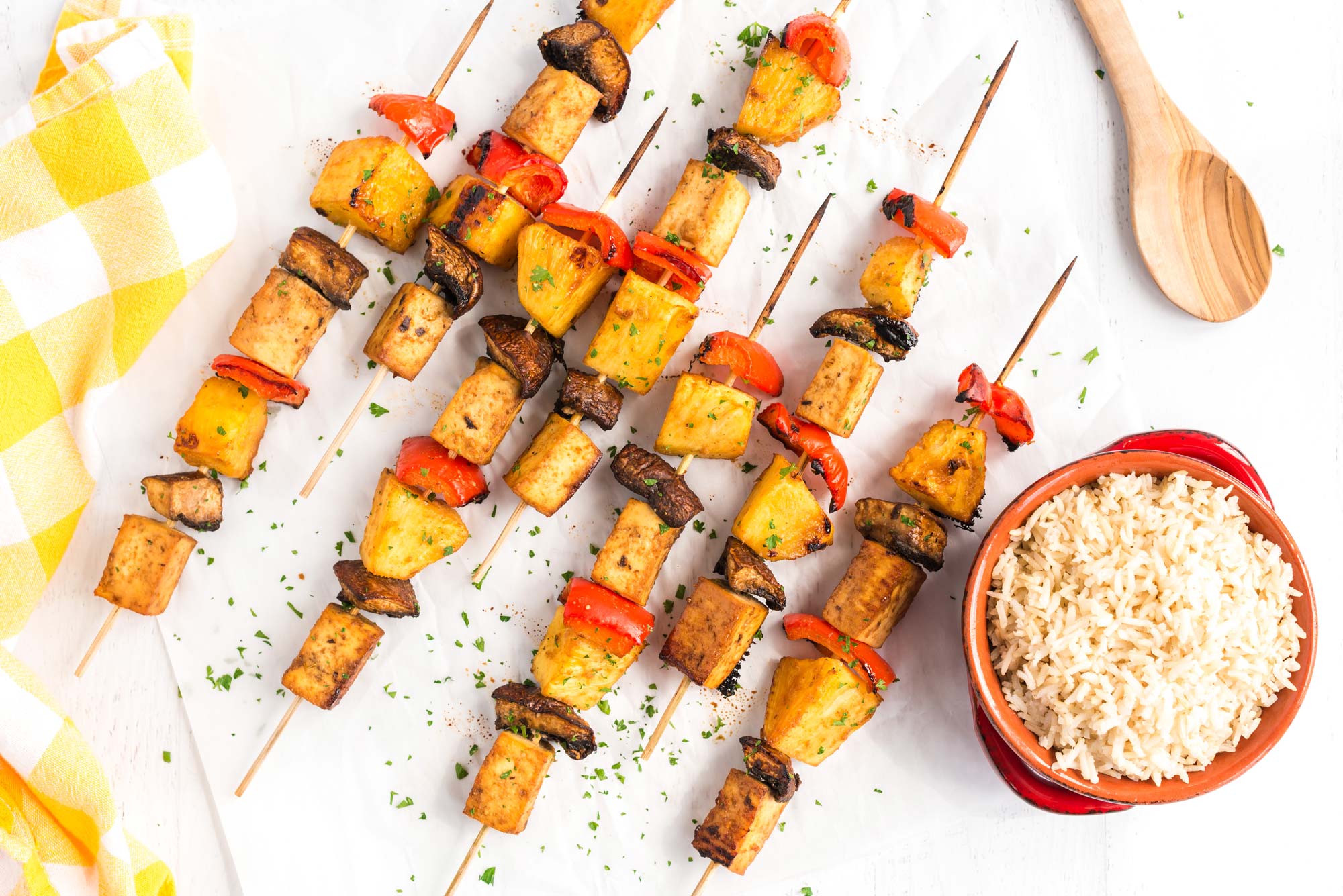
The flavors in this dish work wonderfully together, especially if you give the skewers a little time to marinate before baking or grilling. The umami flavor of the mushrooms combined with the sweet pineapple and savory tofu will satisfy all of your taste buds!
3. Kale Pomegranate Salad with Chopped Walnuts and Sliced Apples
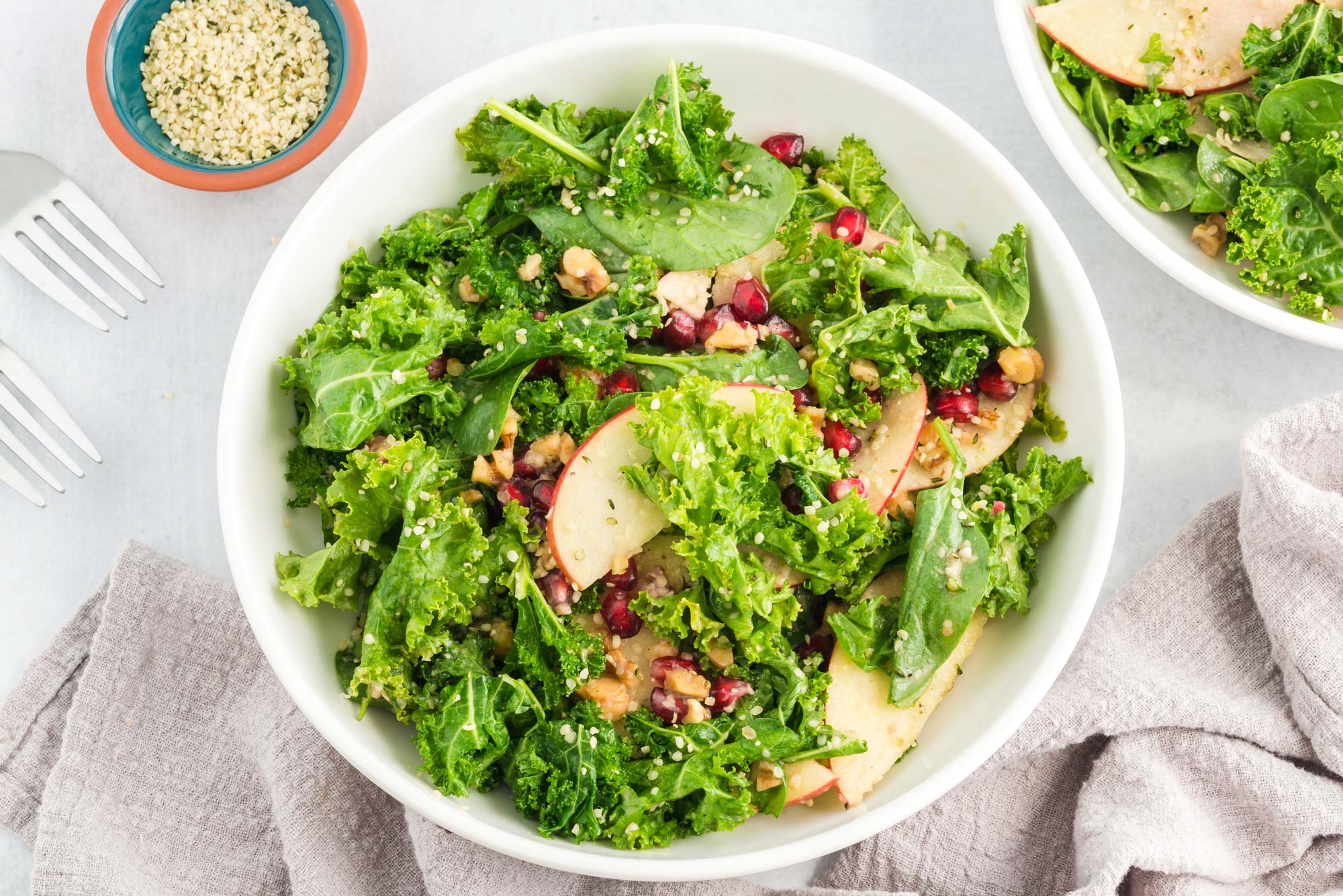
This could be labeled the most refreshing summer salad on the planet with the apples and fresh pomegranate mixed in with the kale. The dressing is nice and light — and super flavorful.
4. Tropical Delight Smoothie Bowl
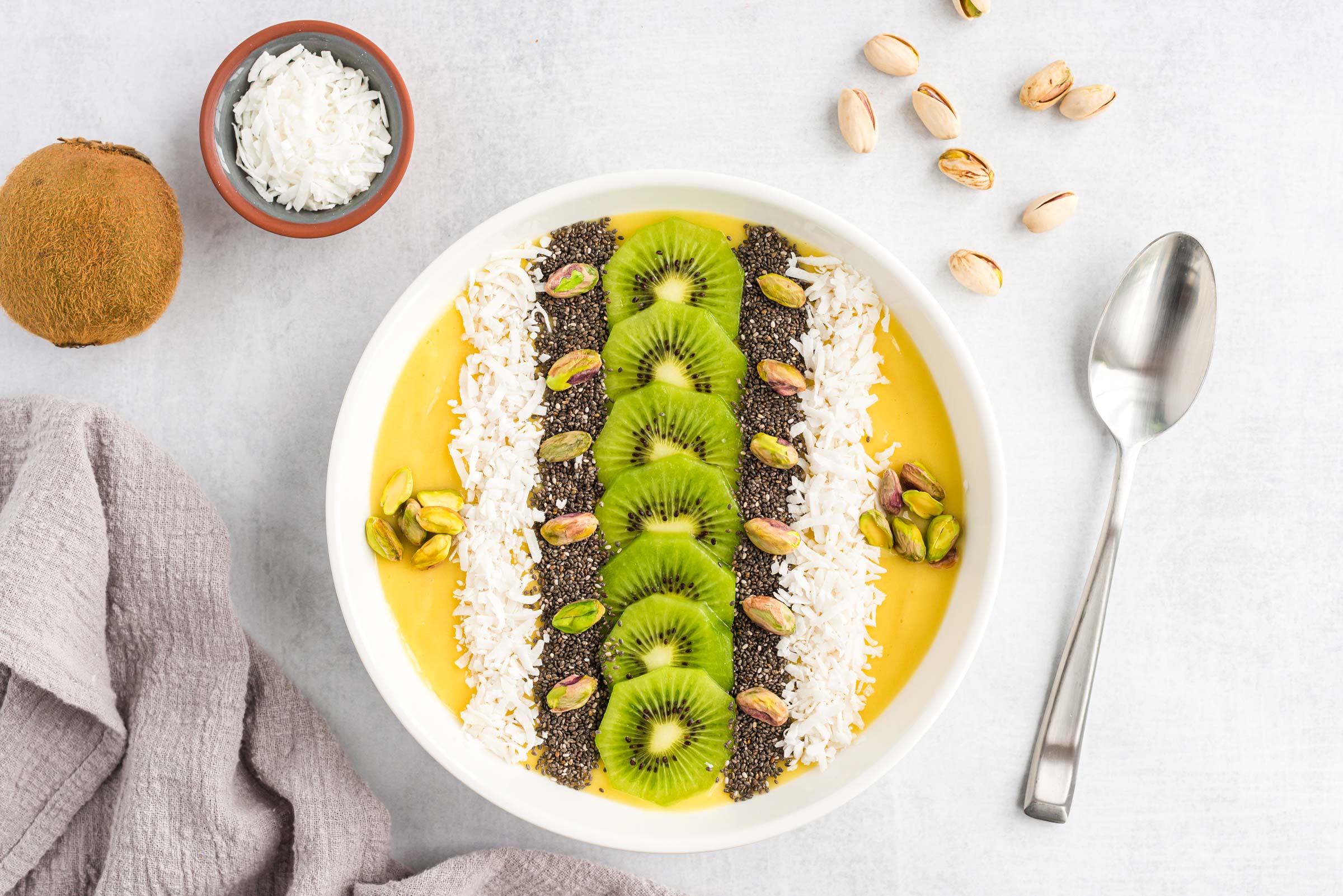
Having an impromptu picnic at home? Bring the tropics to you with this Tropical Delight Smoothie Bowl that’s packed with water for hydration and electrolytes for replenishment. Close your eyes and envision yourself on a beautiful breezy beach!
5. Blueberry Lemon Cooler
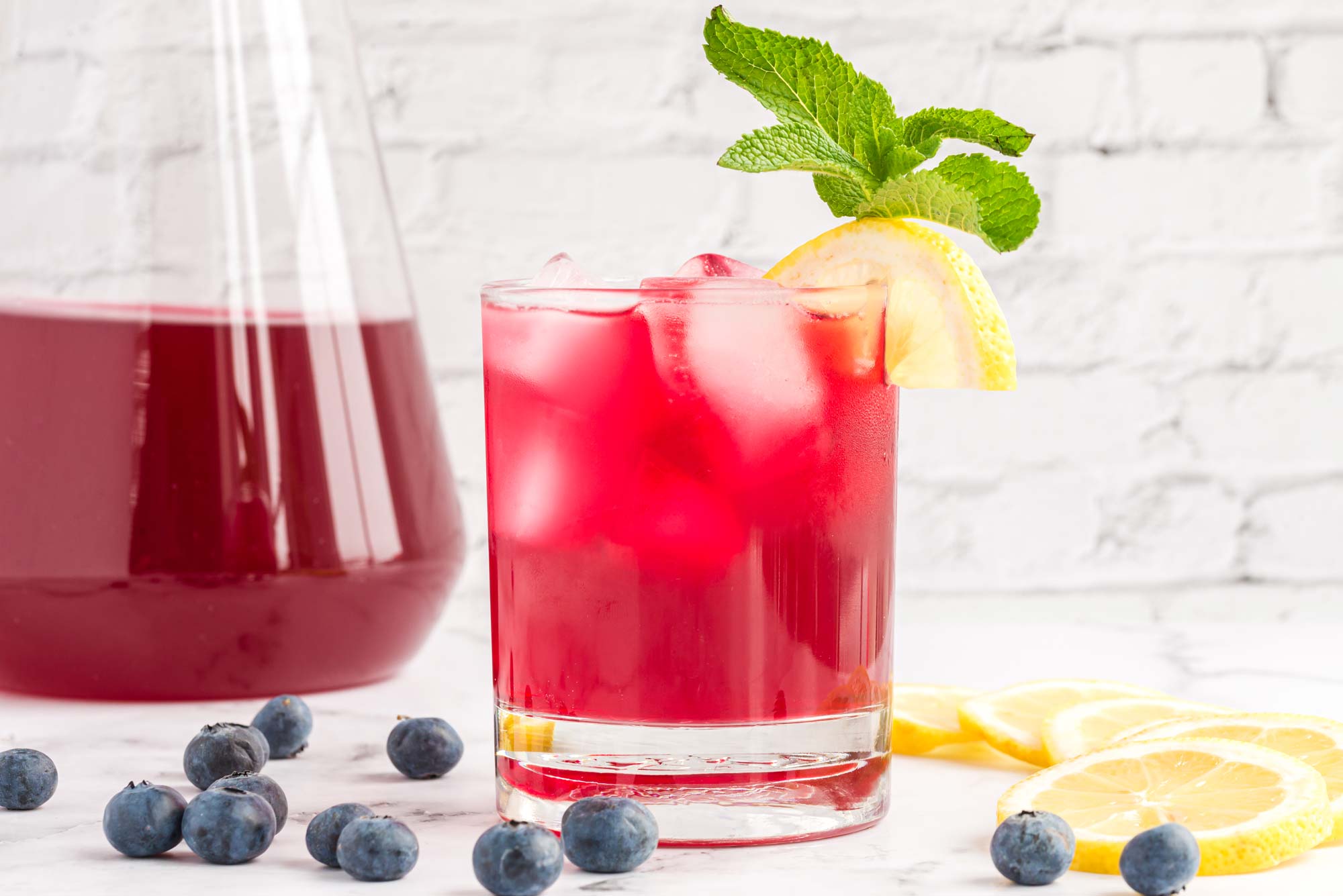
Staying hydrated during the hot summer months is essential. And adding flavorful and nourishing fruits can make it easier to get all the hydration you need. Stock up on local berries, and add a splash of vitamin-C-packed lemon for a nutrient-powered and delicious alternative to water. It will add something special to your next indoor or outdoor picnic!
Enjoy Summer Foods!
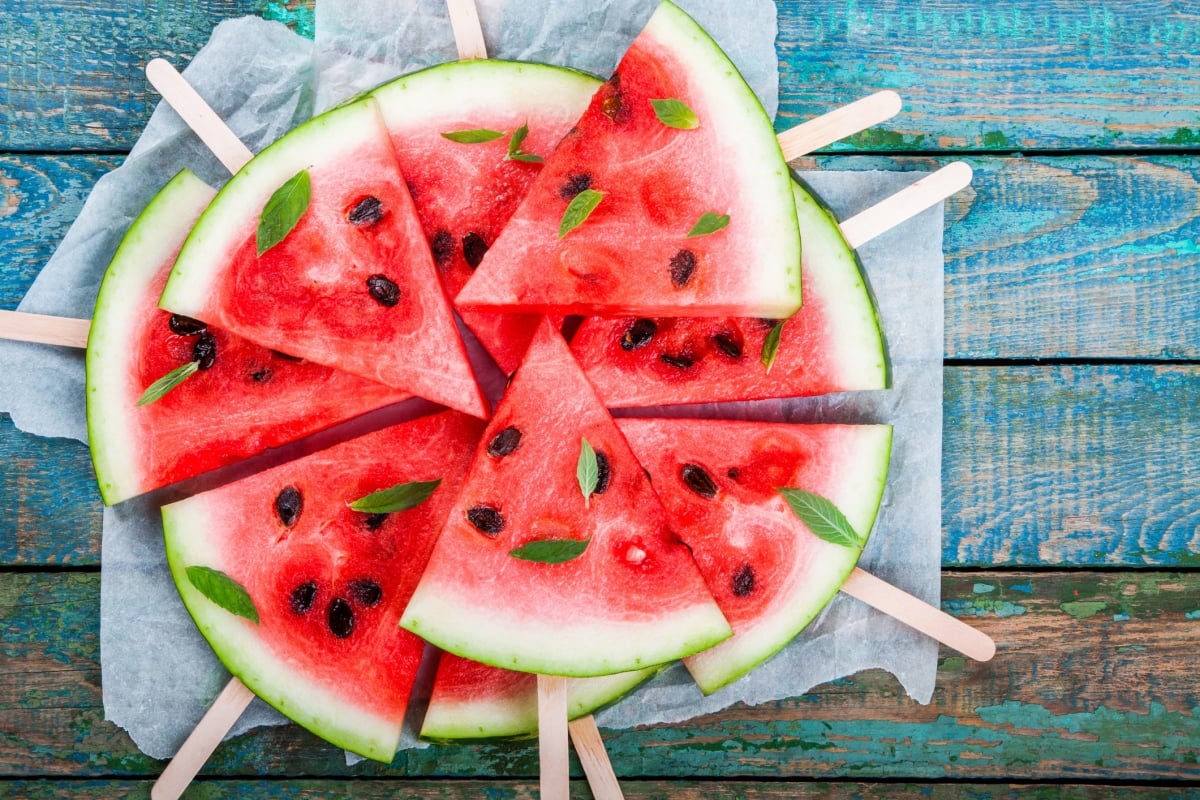
Summer is a great time for enjoying the outdoors — and enjoying food outdoors. But whether you spend most of your time outside in the sun, or inside with the A/C offering you relief, you can still enjoy delicious, healthy, and festive summer foods safely. And if you’re able to share and celebrate with friends and loved ones, all the better!
Tell us in the comments:
- What are your favorite summer fruits and vegetables?
- Have you tried a homemade carrot dog or veggie burger? What did you think?
- Do you have any favorite kinds of healthy summer food festivities?
Featured Image: iStock.com/Arx0nt




